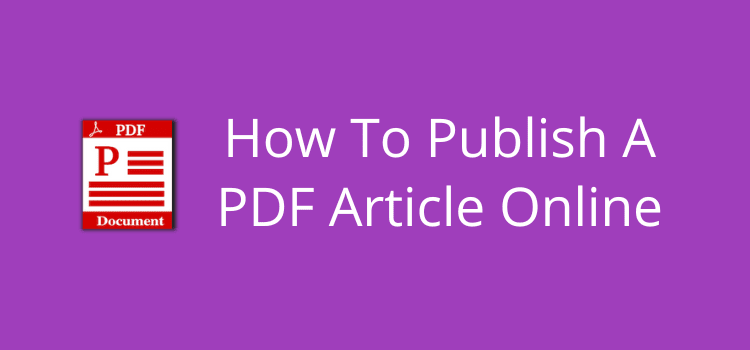
Every day, you probably read about the difficulties of sites posting product reviews or informational article writing due to the advent of artificial intelligence (AI) search.
Headlines and social media posts such as “SEO is dead” or “the days of blogging are over” are commonplace.
While it’s true that changes to the way search engines index articles have hit some bloggers very hard, it’s not the end of the world.
However, to stand a chance in the new environment of Google and Bing AI search and free AI search tools like ChatGPT, Gemini, or Perplexity, you can’t rely on old SEO practices.
Internet search has changed forever

The days of ten blue links on a search engine are over, as are the SEO practices bloggers have used for years.
You can no longer expect a new article to rank based on keyword placement or frequency. Even semantic keywords are unlikely to help.
Keyword stuffing your article titles and meta descriptions is also a losing strategy.
While backlinks may still hold some value, it is now a factor that is becoming less important.
For years, over-optimizing anchor text in links in an article was a favorite ploy, but no longer.
In the past, you could get away with publishing thin content to maximize specific keywords, or writing excessively long articles with the aim of including more keywords . But you can forget about that now.
If you are still using any of these tactics, it’s time to change your thinking about article writing for your site.
In some ways, the changes to search algorithms and indexing have simplified things. All you need to do now is write well and write for your readers, not search engines.
That’s what I have been doing for some months now, and it works. Almost every new article I publish now is indexed by Google and Bing. How high they rank is still a lottery, but some are ranking very well.
Search is no longer only search engines

Not so long ago, most content sites were happy to survive and prosper via organic search engine traffic.
However, this is no longer the case, and many sites have suffered badly. Today, your site traffic needs to come from a range of sources, so you have to adapt.
Whatever content you write now will be sucked up by AI bots. So, you have to consider how your text will be used by AI services such as ChatGPT, Perplexity, and Gemini, among many others.
Users of these tools usually ask detailed and long-form questions. Will your content provide potential answers?
The one downside to these services is that they don’t always provide a link back to your content. But that’s a new reality that all site owners need to expect.
One change that many sites and bloggers are reverting to is social media promotion. When search engine traffic was plentiful, there was no pressing need for it.
However, today, many Internet users, especially younger ones, find the information they need on social media sites such as LinkedIn, Facebook, Instagram, X, TikTok and Pinterest.
If you write regular articles for your site, you will need to work harder on social media promotion to supplement the loss of search engine traffic. Yes, it means more work.
In my case, I have managed to build a new stream of regular traffic from Pinterest and increased my X traffic.
But you won’t want to promote on every social media platform because it’s far too time-consuming.
It’s better to concentrate on two or three that you think will work best for you and your content topics.
Despite all the changes, you can still get reasonable search engine traffic if you publish high-quality articles.
However, forget all about using AI to help you and write every word yourself. Concentrate on your potential readers and answering possible questions or solving problems.
Writing for people, not algorithms
If you read SEO articles or perhaps Reddit threads, you will surely come across “quick fix” ideas to cheat the system.
But you should ignore all of the instant remedy cures. The only way forward is genuinely human-written content that you write for your readers.
That’s not to say you should ignore the basics of publishing and writing articles online. Yes, you still need to include your topic keyword in your post title and URL and perhaps once or twice in your text.
However, relying on every aspect of SEO tools like Yoast is not a great idea now. Write naturally, and don’t worry if you don’t pass every check.
Only use SEO tools like this to check essential elements you might have missed.
These might include missing a meta description, having no internal links, or that you are using too much passive voice. It’s also a good check to ensure each section of your article is not too long.
But apart from these, don’t worry about getting all green lights, especially for your keyword phrase.
Writing for SEO algorithms is over now, so forget about all the little tricks you might have used in the past.
I know it sounds trite and overused, but you can only succeed now if you write for your readers and share your expertise and experience.
Summary
Please don’t read this article as do as I say or do as I do advice because I don’t have all the answers.
Like many bloggers, I was hit hard by search engine algorithm changes, particularly by Google.
However, I didn’t give up and throw in the towel. But it took me months to start understanding what was happening, and I’m still learning every day.
If you have a blog or site that relies on content to attract readers or potential customers, the road ahead is going to be tough. Your site traffic may never return to the levels you might have had before AI search.
The only hard fact is that nothing will remain static, so expect many more changes to come and that you will have to work harder to gain traffic.
All you can do is rely on your writing skills and promote your content much wider than you have done in the past.
Yes, it will take more work, more time, and more analysis to succeed.
But that’s the only way forward.
Related Reading: The Best Level Of Formality For Articles And Blog Posts
Share This Article



I’ve noticed a decrease in Google traffic too, Derek. This whole SEO thing is a minefield right now. It looks like we might all have to bend the knee when it comes to providing AI-friendly content.
But first we need to know what AI-friendly content is. I don’t think anyone has an definitive answer yet.